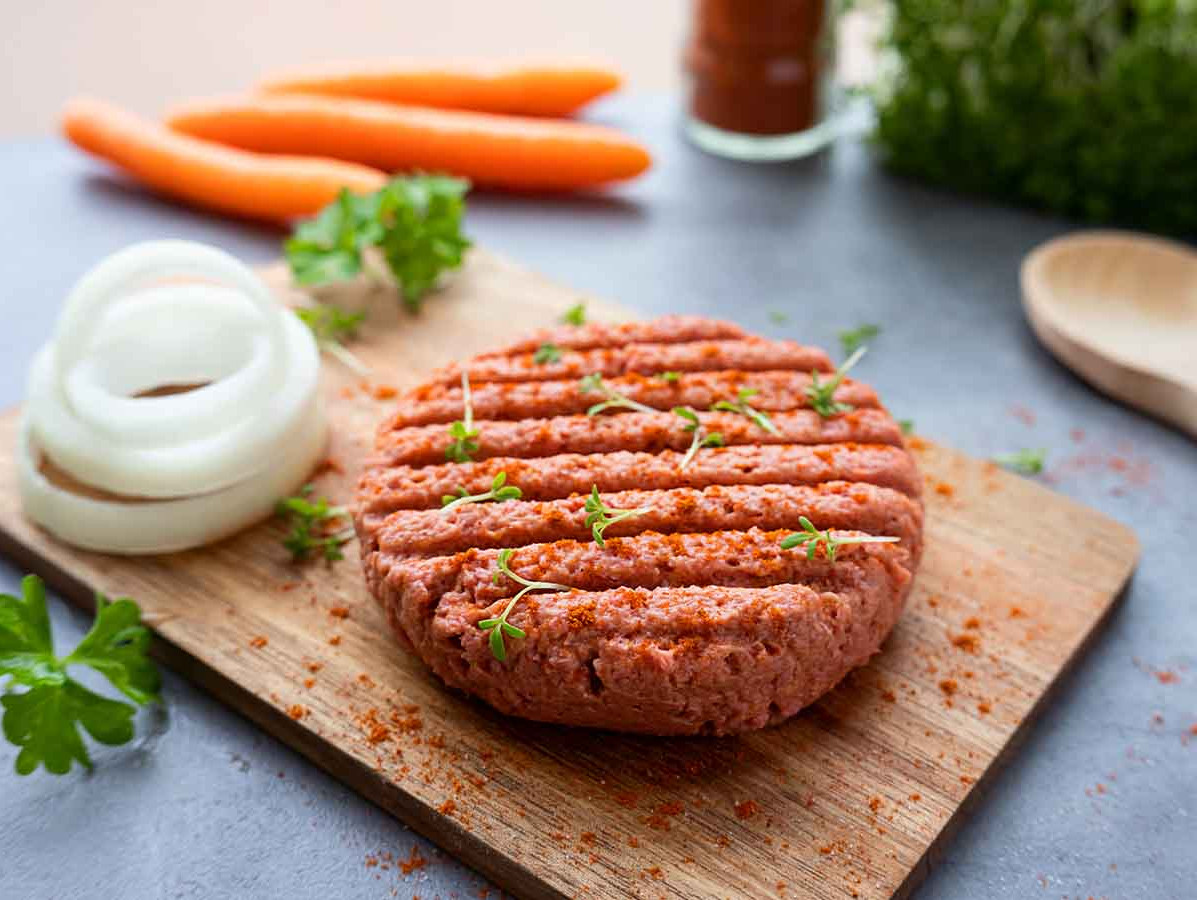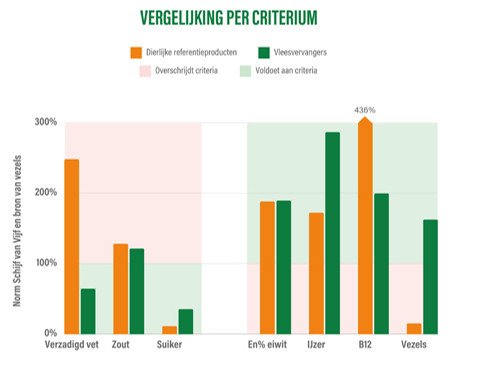
Meat substitutes generally have a healthier nutritional profile compared to their animal counterparts, according to a recent study by ProVeg Netherlands (Dutch). The study analyzed the nutritional value of 130 plant-based meat substitutes from Dutch supermarkets and compared them to traditional animal meat products. The products were tested against the criteria for meat substitutes from the Nutrition Center (Voedingscentrum).
Of the examined meat substitutes, 33% met all the criteria of the Nutrition Center for meat substitutes related to the risk of lifestyle diseases (salt, sugar, and saturated fat), versus 17% of the animal reference products.
Not all factors that could influence the health of meat and meat substitutes were included in this study. For instance, there was no active examination of the presence of nitrite, cholesterol, and trans fat, which are present in animal meat and virtually absent in the studied plant substitutes. On the other hand, the criteria for meat substitutes do not consider the extent to which these products are processed and the digestibility of the proteins.
The results show that meat substitutes generally have a salt content comparable to animal meat. However, they excel in other health aspects: they contain less saturated fat, fewer calories, more dietary fibers, and an equivalent amount of proteins. This difference is particularly evident with red and processed meat.
Various product categories, such as plant-based burgers, minced meat, and (smoked) sausages, surpassed the criteria of the Nutrition Center for meat substitutes compared to their animal equivalents. However, for products like chicken pieces and schnitzel, animal meat sometimes performed better. Nevertheless, many meat substitutes fully meet the criteria of the Dutch Schijf van Vijf.

Figure 1: Average nutritional value of plant-based substitutes and animal reference products compared to the standard values for meat substitutes from the Nutrition Center and the nutrition claim ‘source of fibers’ (both at 100%).
Criticism about the salt content of some meat substitutes has recently made the rounds. Despite these concerns, ProVeg's research put these meat substitutes in perspective by comparing them to traditional meat. The salt content is an area that needs improvement, as meat substitutes, while less salty than processed meat, are saltier than unprocessed meat.
In terms of nutrients, many meat substitutes met protein criteria and were often enriched with important nutrients such as iron and vitamin B12. This contradicts the often-heard claim that meat substitutes don't offer the same nutritional benefits as animal meat.
Concerns have been raised about the health of ultra-processed food, and some have categorized meat substitutes in this group. But as Martine Van Haperen of ProVeg notes, it's not fair to put meat substitutes in the same category as candy or chips. Just like with animal meat, there are healthy and less healthy products. How processed a product is, is in itself not a sufficient indication of whether it's healthy or not.
The ultimate goal is to reduce the share of animal proteins in the Dutch diet. With a decrease from 61% to 58% in recent years and a target of 50% by 2030, meat substitutes play a crucial role in achieving this goal. Especially now that they are becoming more affordable, and sometimes even cheaper than animal meat.
Van Haperen: “As the consumption of meat substitutes increases, it's essential that they have good nutritional value and are preferably healthier than animal meat.”
Source: Proveg